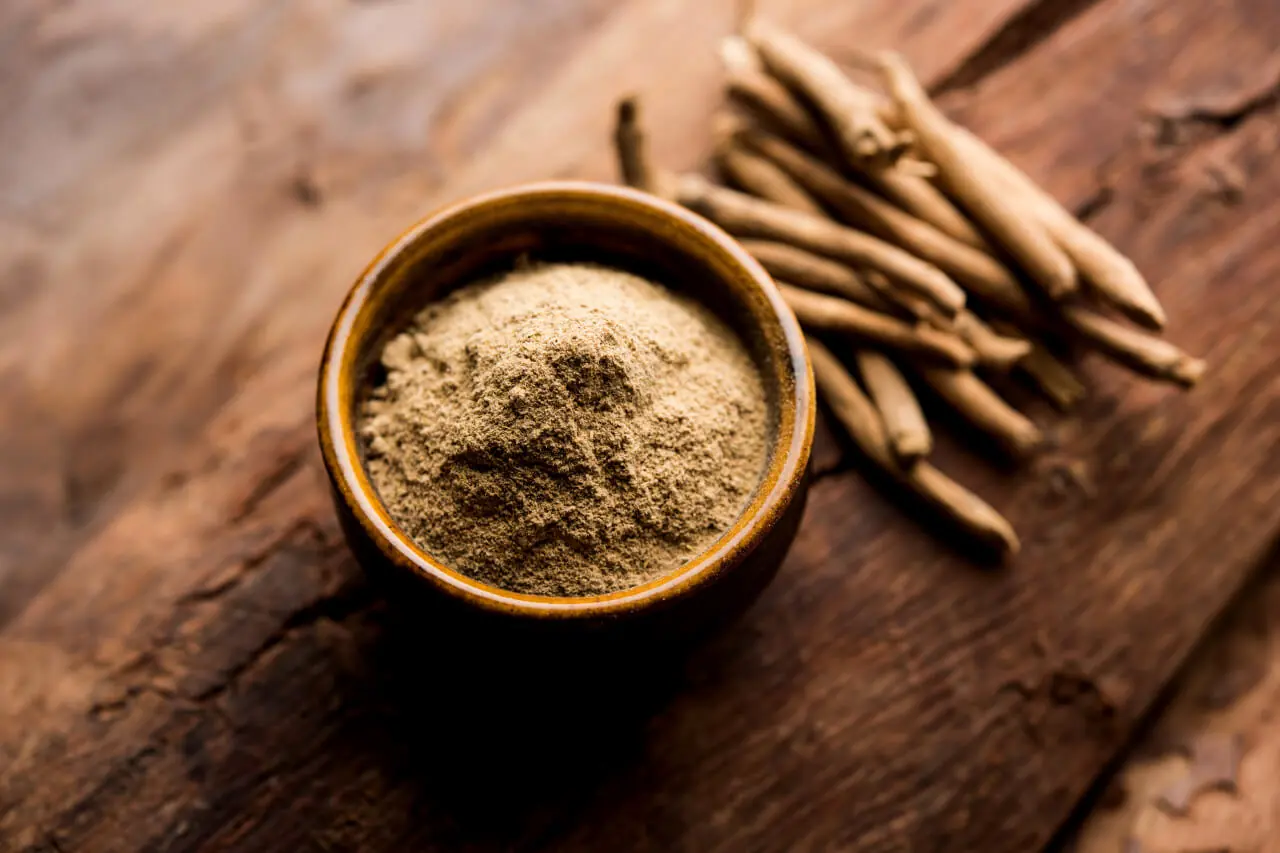Imagine a natural herb, revered for centuries in ancient medicine, that could combat stress, boost brainpower, and fuel your athletic performance.
Sounds too good to be true, right?
Well, that’s exactly what ashwagandha promises, and the science is starting to catch up.
This adaptogenic wonder, also known as Indian ginseng, has been a mainstay in Ayurvedic medicine for over 3,000 years.
But its popularity is no longer confined to ancient texts.
Ashwagandha is rapidly becoming a global phenomenon, embraced by athletes, celebrities, and everyday individuals seeking a natural edge in today’s fast-paced world.
But with great power comes great responsibility (and confusion!).
Navigating the world of ashwagandha dosage can be tricky.
How much is too much? How little is too little?
And how do you make sure you’re reaping the maximum benefits for your specific needs?
Fear not, intrepid explorer! This comprehensive guide is your one-stop shop for all things ashwagandha dosage.
We’ll delve into the science, explore different forms of the herb, and provide you with a roadmap to unlocking its full potential.
What is ashwagandha?
Ashwagandha, also known as Indian ginseng or winter cherry, is a plant that belongs to the nightshade family.
Its botanical name is Withania somnifera, which means “sleep-inducing” in Latin.
The root and berry of the ashwagandha plant are used for medicinal purposes, as they contain various bioactive compounds, such as withanolides, alkaloids, and flavonoids.
It is one of the most important herbs in Ayurveda, the traditional system of medicine in India.
It is considered a rasayana, which means a rejuvenating tonic that enhances vitality, longevity, and mental health.
It is also classified as an adaptogen, which means a substance that helps the body adapt to stress and restore balance.
The recommended dosage for ashwagandha can vary depending on your needs, but most research suggests that taking 250–500 milligrams (mg) per day for at least 1 month may be beneficial.
Why use ashwagandha for stress and anxiety?
Stress and anxiety are complex phenomena that involve multiple factors, such as genetics, environment, personality, and lifestyle.
They can trigger various physiological and psychological responses, such as increased heart rate, blood pressure, cortisol, inflammation, muscle tension, insomnia, irritability, fear, worry, and depression.
It can help reduce stress and anxiety by modulating the activity of the hypothalamic-pituitary-adrenal (HPA) axis, the central stress response system in the body.
It can lower the levels of cortisol, the main stress hormone, and enhance the levels of serotonin, the main mood-regulating neurotransmitter.
It can also protect the brain from oxidative stress and neurodegeneration, which are associated with chronic stress and anxiety.
Several clinical studies have shown that It can significantly improve the symptoms and quality of life of people with stress and anxiety disorders, such as:
- Generalized anxiety disorder
- Social anxiety disorder
- Panic disorder
- Obsessive-compulsive disorder
It can also improve cognitive functions, such as memory, attention, and executive skills, which are often impaired by stress and anxiety.
Ashwagandha for Stress and Anxiety
Ashwagandha can be consumed in various forms, such as capsules, tablets, powders, teas, or extracts.
The dosage and duration of It intake may vary depending on the individual’s needs, preferences, and health conditions.
However, some general guidelines are:
The recommended daily dose of It for stress and anxiety is between 300 and 600 mg, divided into two or three doses.
The optimal time to take It is in the morning or evening, preferably with food or milk.
The effects of It may take several weeks to manifest, so it is advisable to use it consistently for at least two to three months.
It is generally safe and well-tolerated, but some people may experience mild side effects, such as nausea, diarrhea, headache, or drowsiness.
These side effects can be minimized by starting with a low dose and gradually increasing it, or by taking ashwagandha with food or milk.
It may interact with some medications, such as antidepressants, anticonvulsants, sedatives, or thyroid hormones.
Therefore, it is important to consult with your doctor before using ashwagandha, especially if you have any medical conditions or are taking any medications.
Lowering Blood Sugar Levels
Ashwagandha has the potential to reduce blood sugar levels, both in individuals with and without diabetes.
In a study involving 25 participants, It is demonstrated a threefold decrease in fasting blood sugar levels compared to a placebo after a 4-week period.
Another study focusing on individuals with type 2 diabetes found that ashwagandha supplementation for 30 days was as effective as oral diabetes medication in lowering fasting blood sugar levels.
Dosages in these studies ranged from 250 mg to 3 grams (g), typically divided into 2–3 equal doses throughout the day.
Enhancing Fertility
Ashwagandha may contribute to improved fertility and reproductive health, particularly in males.
In a study involving 75 males experiencing infertility.
A daily intake of 5 g of ashwagandha over a 3-month period led to increased sperm count and motility.
Another study focusing on highly stressed men reported that a daily intake of 5 g of ashwagandha resulted in enhanced sperm quality, with 14% of their partners achieving pregnancy by the end of the 3-month study ve also shown similar positive results with comparable dosages.
Lowering Inflammation and Providing Immune Support
It may have anti-inflammatory properties and support immune function.
Previous research indicates that a daily intake of 12 milliliters (mL) of ashwagandha root extract can elevate immune cell levels.
Another study demonstrated that a daily intake of 60 mg of ashwagandha extract for 1 month enhanced the body’s natural and adaptive immune function, potentially offering protection against infections (17).
Additionally, a different study revealed that taking 250–500 mg of ashwagandha over 60 days may lead to a significant reduction of up to 30% in C-reactive protein levels, a marker of inflammation (18).
Memory Enhancement Ashwagandha, a traditional Ayurvedic remedy for memory enhancement, is supported by some scientific studies.
In an 8-week study, a daily intake of 300 mg of ashwagandha root extract twice a day significantly improved general memory, attention, and task performance compared to a placebo.
Another study involving adults with high stress levels showed significant memory and focus improvements after 90 days of taking 300 mg of ashwagandha root extract daily.
While promising, more research is needed in this area before conclusive findings can be established.
Safety and Side Effects of Ashwagandha
Ashwagandha, a popular herb in traditional medicine, is generally considered safe for most people when used appropriately.
However, it’s essential to be aware of potential side effects and consider individual health conditions.
Here is an overview of the safety aspects associated:
Generally Well-Tolerated:
It is well-tolerated by many individuals when taken within recommended dosages.
Common side effects are mild and may include gastrointestinal discomfort, nausea, or headaches.
Pregnancy and Breastfeeding:
Pregnant or breastfeeding women should exercise caution and consult with a healthcare professional before using Ashwagandha.
While traditionally used to support reproductive health, more research is needed to establish its safety during pregnancy and lactation.
Autoimmune Disorders:
Individuals with autoimmune disorders should consult a healthcare provider before using it, as it may stimulate the immune system.
This precaution is to avoid potential interactions with medications and exacerbation of autoimmune conditions.
Medication Interactions:
Ashwagandha may interact with certain medications, such as immunosuppressants, sedatives, or medications for thyroid disorders.
It’s crucial to inform your healthcare provider about any supplements or herbs you are taking to prevent potential interactions.
While rare, some individuals may experience allergic reactions to Ashwagandha.
If you notice signs of an allergic reaction, such as rash, itching, or swelling, discontinue use and seek medical attention.
Blood Sugar Levels:
Ashwagandha may lower blood sugar levels, which can be beneficial for some individuals but may pose risks for those with diabetes.
People taking medications for diabetes should monitor their blood sugar levels closely and consult with a healthcare professional.
Blood Pressure:
Ashwagandha has been reported to have both blood pressure-lowering and blood pressure-raising effects.
Individuals with blood pressure concerns should monitor their levels and seek guidance from a healthcare provider.
Sedative Effects:
Ashwagandha has mild sedative properties, which can cause drowsiness. It’s advisable to avoid activities requiring alertness, such as driving, if you experience excessive drowsiness.
Dose Considerations:
Adhering to recommended dosages is crucial. Excessive intake of Ashwagandha may lead to digestive discomfort, diarrhea, or other adverse effects.
Dosages used in studies typically range from 250 mg to 3 grams, divided into 2–3 doses per day.
While Ashwagandha offers numerous potential health benefits, individual responses vary.
It’s important to consult with a healthcare professional, especially if you have pre-existing health conditions or are taking medications.
Monitoring for any adverse effects and adjusting dosages under professional guidance enhances the overall safety of using Ashwagandha.
Conclusion
Ashwagandha is a natural and effective way to cope with stress and anxiety, as it can lower cortisol, boost serotonin, protect the brain, and improve mood and cognition.
It can be taken in various forms and dosages, depending on the individual’s needs and preferences.
However, it is important to use ashwagandha with caution and under medical supervision, as it may have some side effects or interactions.
It can also be combined with other stress and anxiety management strategies, such as exercise, meditation, therapy, or social support, to achieve optimal results.
By using ashwagandha, you can enhance your resilience, well-being, and happiness.
FAQs
What is the recommended dosage of Ashwagandha for managing stress and anxiety?
The recommended dosage of Ashwagandha can vary, but a common starting point is 300 mg to 500 mg of standardized root extract taken twice daily.
It’s advisable to start with a lower dose and gradually increase, based on individual response and consultation with a healthcare professional.
How long does it take for Ashwagandha to show effects on stress and anxiety?
It’s effects may vary among individuals.
Some people may experience a reduction in stress and anxiety within a few weeks, while others may take longer.
Consistent usage is key, and it’s recommended to allow 4 to 6 weeks to assess its full benefits.
Can Ashwagandha be taken with other medications for anxiety or depression?
It’s crucial to consult with a healthcare provider before combining Ashwagandha with other medications.
While generally well-tolerated, interactions may occur, and a healthcare professional can provide personalized guidance based on your specific health conditions and medications.
Are there any potential side effects of Ashwagandha, and can it be overdosed?
It is considered safe for most people when taken at recommended dosages.
However, excessive intake may lead to digestive discomfort.
It’s essential to adhere to suggested dosages and consult with a healthcare practitioner.
Individuals with specific health conditions or allergies should exercise caution and seek professional advice.
Can Ashwagandha be taken on an empty stomach, and does it interact with food?
It can be taken with or without food, depending on personal preference.
While it generally doesn’t interact negatively with food, taking it with a meal may help minimize the risk of digestive issues for some individuals.
Is Ashwagandha suitable for everyone, including pregnant women and children?
Pregnant or breastfeeding women and children should consult with a healthcare professional before using It .
While it’s generally considered safe, individual health conditions and sensitivities may vary, and professional guidance ensures the well-being of both the mother and child.





